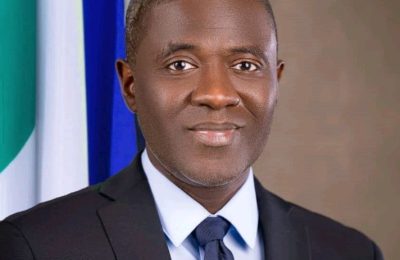THE AGONY OF A NATION: SOCIOECONOMIC, POLITICAL, AND PSYCHOLOGICAL BURDENS OF GOVERNANCE FAILURE IN NIGERIA
Author: *Aduojo J. AGI, Ph.D.*
ABSTRACT
Nigeria, Africa’s most populous country and a beacon of potential, faces a multidimensional crisis that has eroded the quality of life of its citizens. This paper critically examines the complex web of hardship plaguing Nigerians, including insecurity, economic deprivation, political oppression, and moral decay. It explores the psychological and social toll on families, the collapse of basic needs hierarchy, and the erosion of the middle class. Key drivers such as the destruction of farmlands by Fulani herdsmen, pervasive corruption, inflation, unemployment, and the rise of criminal activities (e.g., “Yahoo Yahoo,” kidnapping, ritual killings) are analyzed. This study argues that governance failure and systemic insensitivity are at the root of these challenges, creating conditions for brain drain (“Japa syndrome”) and the collapse of national unity. The paper concludes with actionable recommendations aimed at national and international stakeholders to restore hope, dignity, and sustainable peace in Nigeria.
*KEYWORDS* :
Nigeria, insecurity, governance failure, Fulani herdsmen, poverty, corruption, Japa syndrome, socioeconomic crisis, political oppression, psychological impact
1. *INTRODUCTION* :
Nigeria, once heralded as the “Giant of Africa,” is now perceived by many of its citizens as a nation in decline. The realities of widespread insecurity, economic hardship, political impunity, and moral degeneration have created an environment where survival is prioritized above dignity, unity, or human development.
The ongoing struggles reflect what can be described as a reversal of Maslow’s hierarchy of needs: basic physiological survival (food, safety, shelter) is increasingly unattainable, while higher aspirations such as self-actualization appear distant for the majority. This paper documents the multidimensional crises facing Nigerians, focusing on their impacts, drivers, and possible pathways to renewal.
2. *SOCIOECONOMIC HARDSHIPS AND PSYCHOLOGICAL IMPACT* :
2.1 *POVERTY AND INFLATION* :
Inflation, currently at record highs, erodes purchasing power and deepens poverty. Families that once relied on a modest income find themselves unable to afford basic necessities, including food, medicine, and school fees. This has created a vicious cycle of hunger, malnutrition, and disease.
2.2 *BREADWINNERS AND FAMILY STRAIN :*
The agony of breadwinners is particularly pronounced, with many men and women facing the humiliation of financial inadequacy. Family divisions, disappointments, and even marital breakdowns are increasingly tied to economic stress.
2.3 *PSYCHOLOGICAL AND SPIRITUAL BURDENS* :
Mental confusion, stress, depression, and spiritual doubts are widespread, especially among youth whose dreams of a better future seem unattainable. The mass desire to “Japa” (emigrate for greener pastures) reflects not just economic disillusionment but also a collapse of national hope.
3. *INSECURITY AND VIOLENCE* :
3.1 *fulani herdsmen and militia attack* ;
The activities of armed herdsmen and their militia continue to destroy lives, farmlands, and entire communities. The loss of agricultural productivity not only drives food insecurity but also worsens poverty in rural Nigeria.
3.2 *KIDNAPPING, RITUALS, AND Robbery* :
Kidnappings for ransom, ritual killings, armed robbery, and violent crimes reflect both the absence of effective policing and the desperation of unemployed youth.
4. *POLITICAL DECAY AND GOVERNANCE FAILURE* :
4.1 *CORRUPTION AND VOTER INDUCEMENTS* :
Corruption remains endemic at all levels, institutionalized through patronage networks and voter buy-out during elections. Citizens are disenfranchised while political elites enrich themselves.
4.2 *DISUNITY AND OPPRESSION :*
The deliberate fanning of ethnic and religious disunity by leaders further undermines national cohesion. Government’s insensitivity toward the plight of citizens deepens the perception of Nigeria as a “jungle of survival of the fittest.”
5. *MORAL AND SOCIAL EROSION* :
5.1 *Youth Desperation* :
The rise of “Yahoo Yahoo” internet fraud, prostitution, and ritual killings among young Nigerians reflects a moral breakdown. Economic hardship has normalized illicit pathways to wealth.
5.2 *Collapse of the Middle Class* :
The middle class—once the stabilizing force of society—is eroding rapidly, leaving only a widening gulf between the rich and poor.
6. *Global Implications* :
*THE NIGERIAN CRISIS HAS TRANSNATIONAL CONSEQUENCES:*
*Brain drain* : skilled professionals emigrate, creating global talent redistribution but weakening national capacity.
*Regional instability* : insecurity spills into neighboring states.
*Humanitarian crisis* : rising displacement and poverty increase migration pressures on Europe and beyond.
7. *RECOMMENDATIONS*
1. *Strengthen Security Architecture:* Professionalize policing, address Fulani militia violence, and equip local communities for self-defense within the law.
2. *Economic Stabilization:* Implement policies to curb inflation, promote agricultural recovery, and invest in local industries.
3. *Anti-Corruption Enforcement:* Strengthen institutions like EFCC and ICPC while depoliticizing their operations.
4. *Political Reforms:* Ban vote-buying practices, enforce campaign finance transparency, and decentralize power for accountability.
5. *Youth Empowerment:* Create sustainable job programs, vocational training, and entrepreneurship incentives to discourage crime.
6. *Restore Social Services:* Ensure access to healthcare, education, clean water, and electricity to rebuild public trust.
7. *National Reconciliation:* Promote dialogue across ethnic and religious divides, champion inclusive governance, and enact justice for victims of violence.
8. *Diaspora Engagement:* Convert “Japa” brain drain into brain circulation by incentivizing skilled Nigerians abroad to invest or return.
8. *Conclusion* :
Nigeria’s crisis is not insurmountable. With visionary leadership, accountability, and grassroots-driven solutions, the nation can overcome its present agony. The international community also has a role to play, but the burden lies primarily with Nigerians themselves—to reclaim their future from the grip of bad governance and endemic corruption.
*REFERENCES* :
Akinyemi, B. (2022). Governance and insecurity in Nigeria: Challenges and prospects. African Security Review, 31(2), 145–160.
Ezeani, E. (2021). Corruption, politics, and the collapse of Nigerian institutions. Journal of Modern African Studies, 59(3), 377–395.
Maslow, A. H. (1943). A theory of human motivation. Psychological Review, 50(4), 370–396.
International Crisis Group (2022). Violence in Nigeria’s Middle Belt: Causes and solutions. ICG Report No. 298.
Transparency International (2023). Corruption Perceptions Index 2023: Nigeria Country Report.




